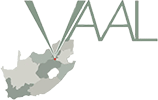Text (double-click to edit)


PRODUCTS
VAAL INDUSTRIAL & BUSINESS GUIDE
BUSINESS ASSOCIATIONS
CONTACT US
THE
& BUSINESS
GUIDE
INDUSTRIAL
Usco
Vecor
Karan Beef
Product Range
Keywords
Karan Beef is the largest supplier of premier quality beef in South Africa and the largest supplier of feedlot beef in the southern hemisphere. Recent research from the Medical Research Council states that South African bred A-grade beef is considered the healthiest in the world. Unlike most A-grade beef consumed in the United States, which has up to 35% fat content, South Africa's A-grade beef has only a 13% fat content. Karan’s feedlot facility at Heidelberg accommodates 80 000 cattle, which is about a quarter of all South Africa’s feedlot cattle. The facility is fully computerised and is one of the most modern feedmills in the world.
In 1952, Ivor Karan’s grandfather bought the 1500 hectare Elandsfontein farm 13km south of Heidelberg, Gauteng, which he farmed as a dairy operation. In 1974, Ivor joined his father and travelled overseas to study feedlotting techniques as the company did not have the high quality grazing that some of its competitors had. In 1979 they sold the dairy herd and converted wholly to cattle feedlotting. The added costs of feedlot beef was offset by Karan’s continual innovation in the scientific development of animal feeds and animal handling techniques. Also, with no strong brand in the fresh meat business and rather than simply selling a high quality commodity to retailers, Karan Beef transformed itself into a trusted brand. Karan Beef has grown from 300 head of cattle in 1979 to more than 80 000 at any one time in the feedlot.
Karan Beef incorporates both social and environmental responsibility in its business model. In 1999, Ivor Karan donated a 135 hectare portion of his farm to employees of Karan Beef and other farm workers from informal settlements in Ratanda township. The initiative was to provide housing for the company employees and the project was broadened to include workers from farms nearby.
PHOTO GALLERY
MAP
WEBSITE
CONTACT DETAILS